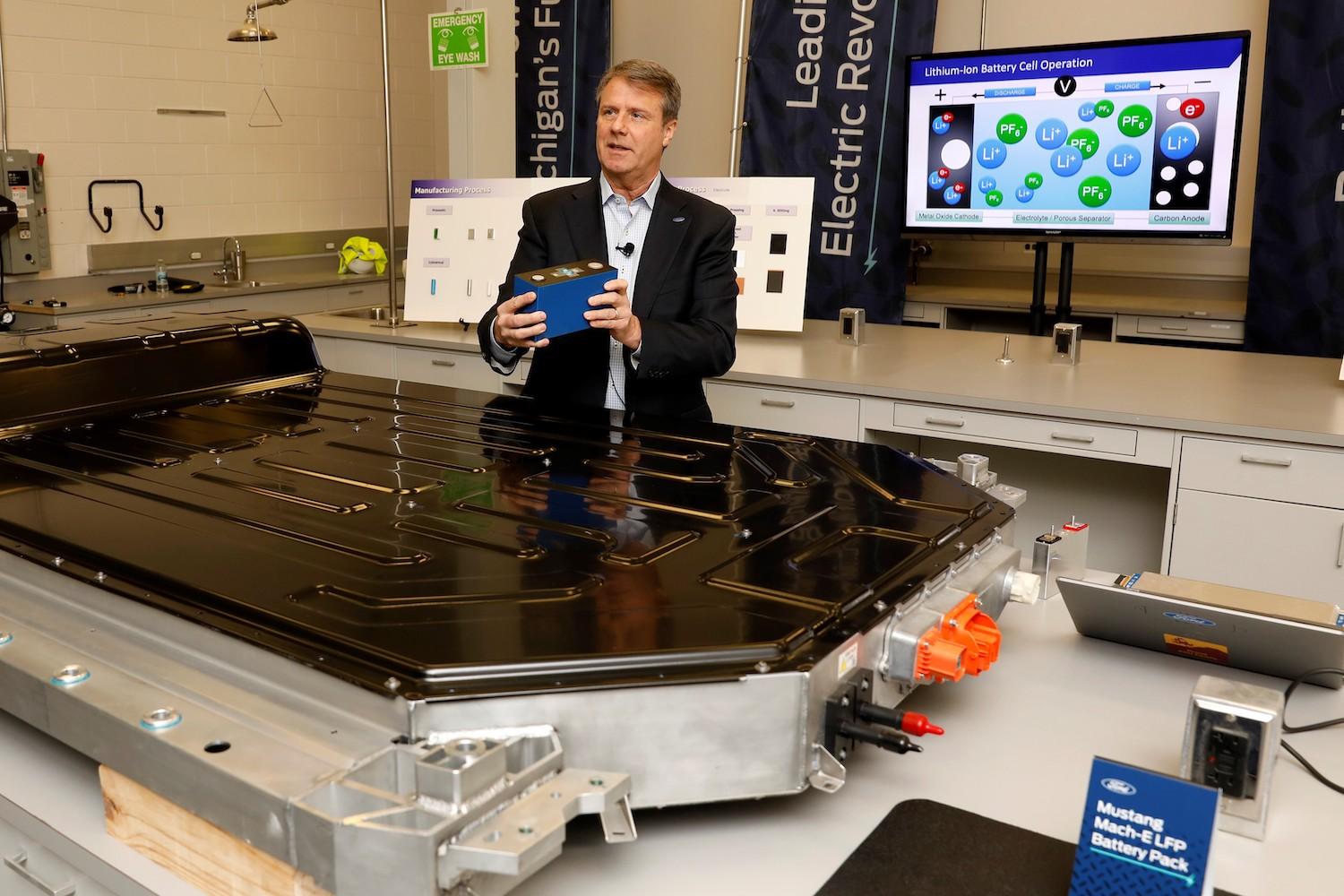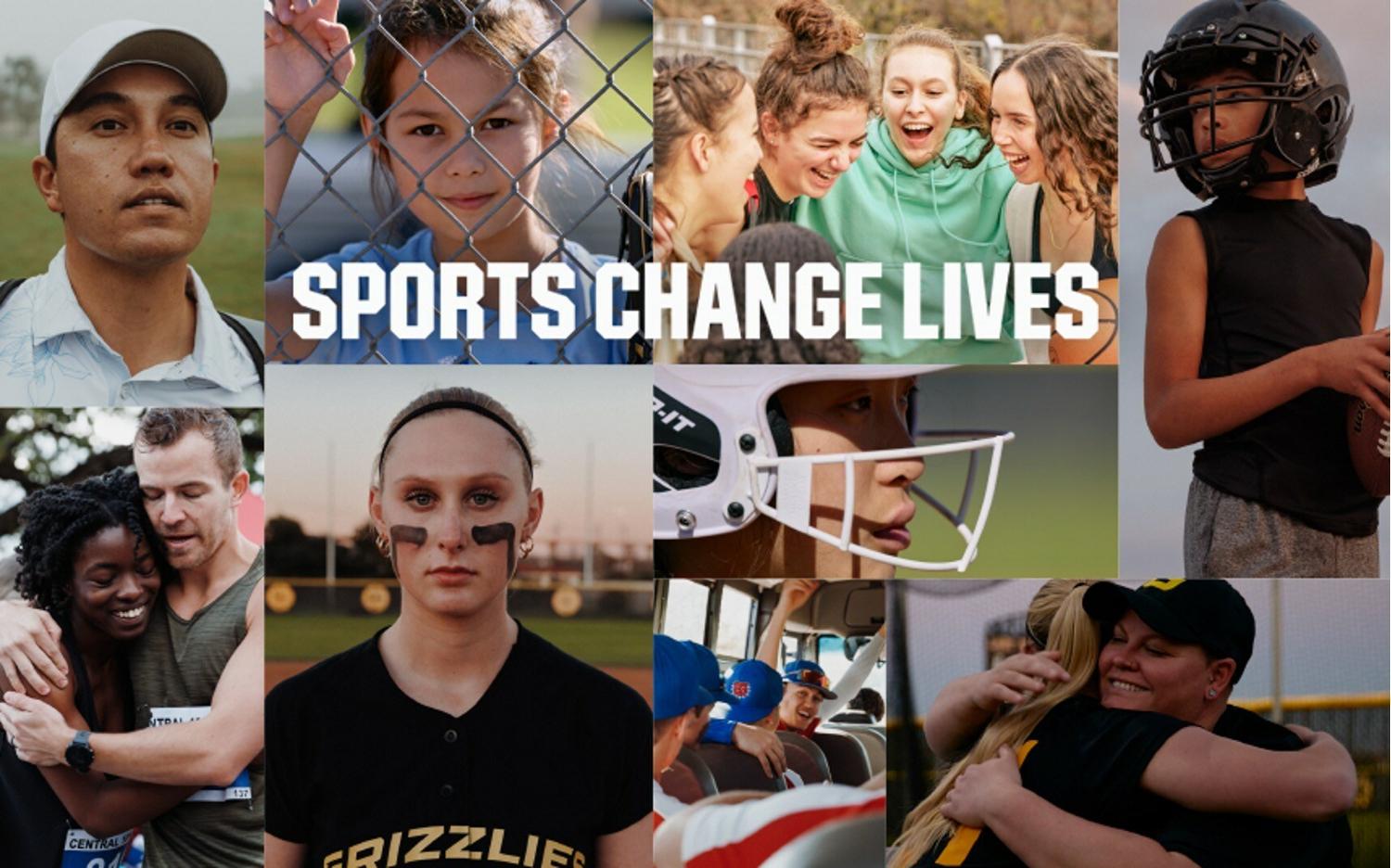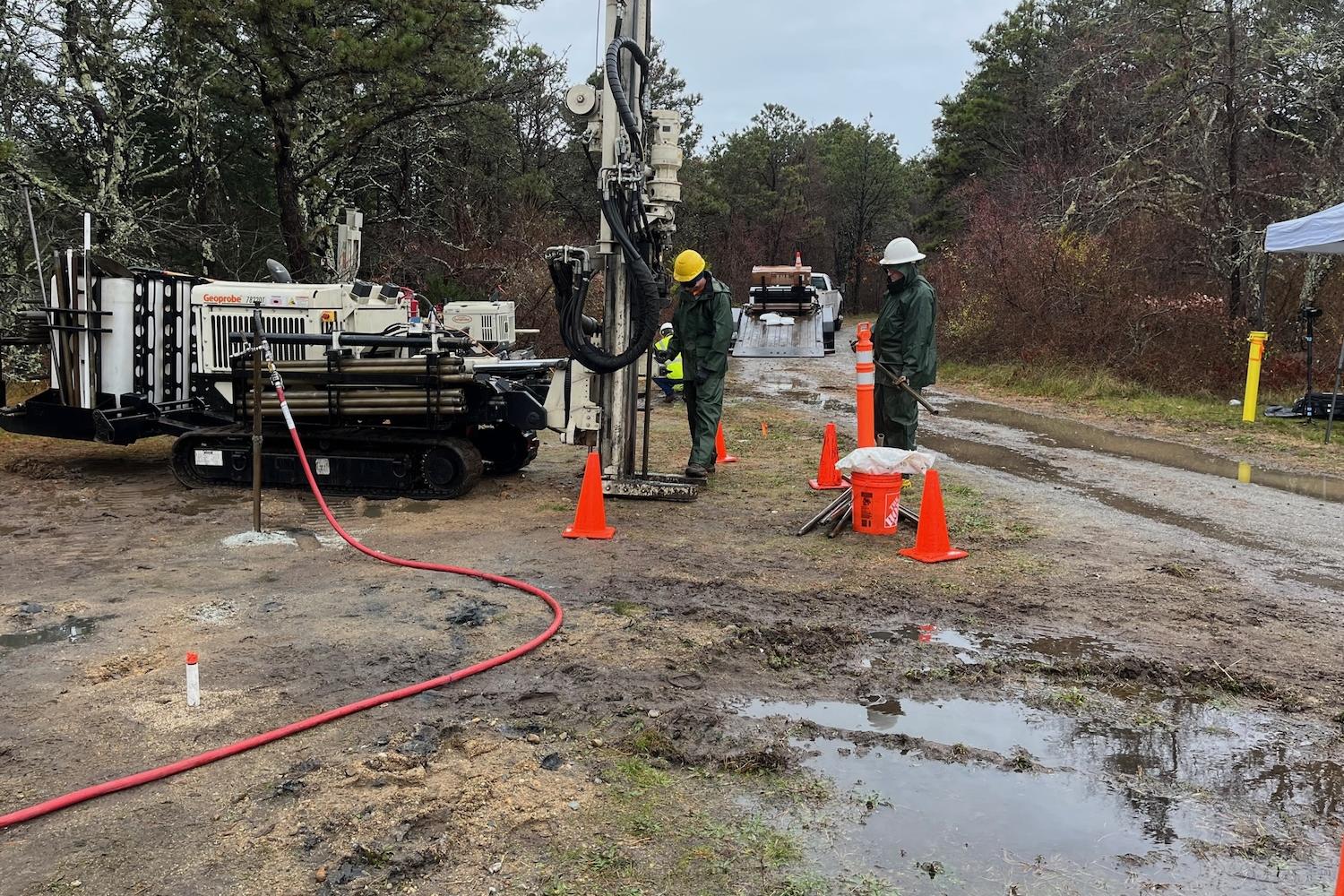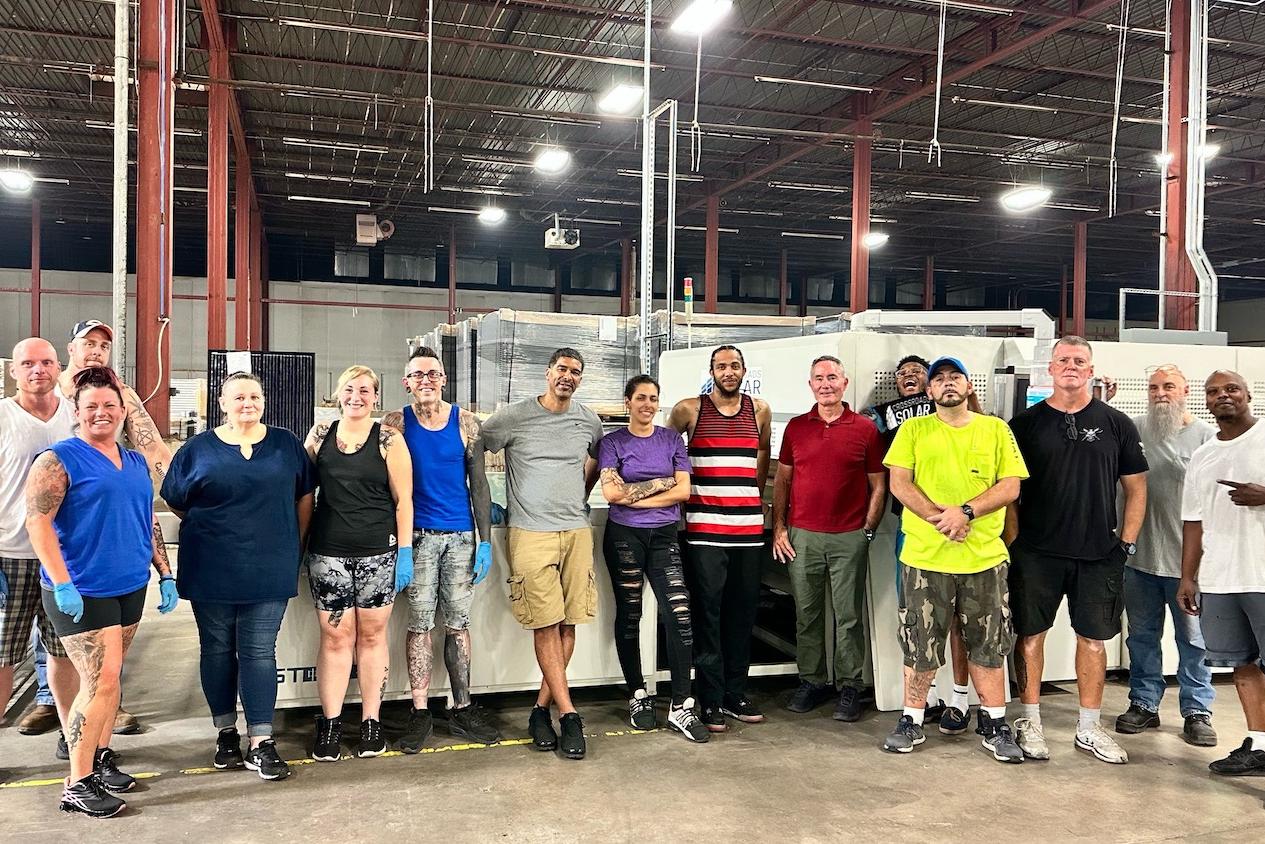
(Image: Gatot/Adobe Stock)
2023 was a big year for TriplePundit. After nearly two decades covering the ways sustainability and social impact issues intersect with business, we began transitioning our coverage toward solutions journalism in the first half of the year and formally announced the change in October. Our renewed focus on evidence-based sustainability solutions resonated with our community of readers, and these were some of the headlines that caught your eyes most this year.

Next-gen EV batteries made in the USA
Most electric vehicles use lithium-ion batteries with a cathode made from nickel, cobalt and manganese. "These materials provide a longer range and faster charging speeds," TriplePundit contributor Tina Casey reported in February. "On the downside, conventional EV batteries can be susceptible to overheating and fire. The global supply of nickel and cobalt comes primarily from Russia and the Democratic Republic of the Congo, making it fraught with human rights abuses as well."
To address these challenges, researchers are looking into alternative cathodes. One with early promise is based on a lithium-iron-phosphate formula — also known as an LFP, the acronym for the chemicals that are involved in its production. There are some trade-offs with LFPs, namely that they take up more space to deliver the same amount of battery range. But automakers including Tesla and Ford Motor Co. are pursuing the cathodes in earnest for use in the U.S.
Tesla introduced the LFP formula to its U.S. lineup in 2022, and this year Ford announced plans to build a new $3.5 billion EV battery factory in Michigan dedicated exclusively to manufacturing LFP batteries. The plant is expected to go online in 2026 and employ around 2,500 people, according to Ford.
Research links ESG performance to the bottom line
Companies use environmental, social and governance (ESG) principles to measure and improve their impact on society and the environment. But political pushback against ESG is on the rise, with critics arguing ESG principles distract business leaders from their fiduciary duty to deliver the maximum possible profit for shareholders.
"Anti-ESG" pushback reached a fever pitch this year, but those critics clearly aren't paying much attention to the ongoing research that tracks how ESG performance impacts profit. The Center for Sustainability and Excellence (CSE), for example, conducts annual research to measure how ESG best practices and standards affect corporate profitability and transparency. Its most recent report was published in February of this year, based on an assessment of more than 310 companies in the Fortune 500.
TriplePundit contributor Amy Brown reported on the findings: "While the research found no direct correlation between ESG practices and financial performance or absolute profit among the highest-ranked companies, there is evidence that applying ESG goals along with specific reporting frameworks and ratings results in better financial performance, according to CSE."
“Direct correlation is very hard to prove since there are so many different factors that affect profitability, including inflation,” Nikos Avlonas, president of CSE, told us in February. "However, it's known that intangible assets, including non-financial data, represents about 80 percent of the value of the business, and ESG criteria and data represents a very big portion of the 80 percent. So there is some kind of indirect correlation between financial performance and ESG practices, because these factors represent a very big portion of the value of the business.”

Microtransit offers a solution for public transportation 'deserts'
Public transit ridership plummeted around the world at the start of the coronavirus pandemic and never fully recovered. Some riders may be hesitant to revisit densely packed public spaces, but convenient access to public transit remains a key reason why ridership continues to lag.
As housing prices skyrocketed in major cities and the pandemic eased the transition to remote work, people across the U.S. and around the world started moving out of downtown areas in search of lower costs. That means where people live in relation to historic transit hubs is quickly changing, further complicating the fact that only around half of urban residents worldwide have access to public transit near their homes.
Microtransit providers tout technology as a solution to expand public transit access and allow people to move around the community more quickly, easily and cheaply. These providers work with cities to launch locally-based apps that work much like the carpool function on Lyft or Uber, allowing users to request shared rides in publicly-owned vans with others traveling in the same direction.
As TriplePundit contributor Riya Anne Polcastro observed, these services are particularly helpful for seniors and people with disabilities, who often struggle most with existing public transit systems. More than 450 companies offer microtransit services as social and sustainability solutions worldwide, and U.S. cities like Camden, New Jersey, are already seeing success from the programs.
Marine biologists preserve coral reefs through the power of listening (and a little help from AI)
Back in April, Google teamed up with a pair of marine biologists, Steve Simpson and Mary Shodipo, to launch the Calling in our Corals project. The project aimed to measure the success of marine protected areas and other restoration programs using acoustic recordings, with a little help from everyday people and artificial intelligence (AI).
"Marine biologists have recorded the surprisingly vibrant sounds of coral reefs in 10 countries," TriplePundit contributor Ruscena Wiederholt reported. "The chirps and grunts of healthy reefs burst forth like a lively metro area at rush hour, while the muted tones of damaged reefs resemble a sleepy village. Anyone can log onto Google's platform to listen to these reef recordings and identify sounds made by fish, shrimp and other underwater animals. These crowd-sourced data are then used to train an AI model."
The tool will use the findings to better understand the health of coral reefs. "But that’s not all," Wiederholt wrote. "Impressively, this tool may also help to restore reefs. Some animals, like fish larvae, corals and other invertebrates, spend their larval stage in the open ocean. The sounds of a healthy reef act like a beacon, encouraging juvenile animals to settle there. Consequently, playing the music of healthy reefs on underwater speakers may accelerate their regrowth and restoration." As AI-driven sustainability solutions go, it's a pretty cool concept, and we can understand why you all loved reading about it.

Dick’s Sporting Goods marks 75th anniversary with $75,000 grants for youth sports
To celebrate its 75th year in business, the retailer Dick's Sporting Goods launched the 75for75 Sports Matter Grant Program — aimed at distributing 75 grants worth $75,000 each to select youth sports programs across the U.S. The program added up to more than $5.6 million in support for youth sports this year.
"That impact is needed more than ever. Young children participated in team sports at a historically low rate last year, according to the Aspen Institute’s Project Play," TriplePundit contributor Gary E. Frank reported in March.
"In addition to the grant program, the company’s foundation renewed its $1.5 million contract with Good Sports to provide 20 of the most under-resourced communities across the country with $75,000 worth of youth sports equipment in 2023," he reported. "Additionally, the foundation has established a new $1 million partnership with the Local Initiatives Support Corporation (LISC) to launch the Game On — Community Places to Play Initiative, which will help to create or renovate up to 20 multi-use youth sports spaces in underserved communities."
Chicago tests out universal basic income
"A new program in Chicago will distribute $500 per month to 5,000 of the city’s residents for the next year," 3p contributor Riya Anne Polcastro reported back in February. Chicago's Resilient Communities Pilot is the largest of several guaranteed income initiatives launched in the U.S. since the start of the pandemic as a way to combat extreme poverty.
A number of California cities including Los Angeles, San Diego, Stockton and Oakland launched guaranteed income programs over the past two years. Colorado made its program permanent, "with two payments of $1,000 available to workers who lose their jobs, regardless of their immigration status," Polcastro reported. In her coverage, she wonders if the potential success of programs like these could pave the way for universal basic income in the U.S., or if any perceived failure would be "used as fodder for conservative ire."
Companies look to prepare for the SEC's climate disclosure rules
At the start of 2023, the business world was abuzz with speculation about a corporate climate disclosure mandate from the U.S. Securities and Exchange Commission (SEC). The SEC first proposed a set of climate disclosure rules in March 2022. The final rules were first expected in February of this year, then in April, then over the summer. Now the agency is saying we won't see them until spring of 2024.
What exactly will be included in the rules is still unknown — including whether they'll require companies to disclose the emissions from their full value chains (known as Scope 3) or only the emissions they directly create. But most business and sustainability professionals agree that preparing for some form of mandatory climate disclosure now is the best way to ensure compliance when the mandate finally drops.
TriplePundit contributors Andrew Kaminsky and Mary Riddle explored what businesses can expect from the SEC rules and how to prepare in coverage that was a big hit with our readers. "While businesses have yet to be shown the final climate disclosure rules from the SEC, there are measures they can take to hit the ground running when the rules are revealed," Kaminsky reported.

Beverage giants explore paper bottles as sustainability solutions
Shortly after TriplePundit's relaunch, contributor Abha Malpani Naismith took a closer look at a new set of sustainability solutions making their way across the beverage industry: recyclable and biodegradable bottles made from paperboard.
Companies including Pulpex, Frugalpac and Paper Bottle Co. (PaBoCo) are developing their own versions of paper bottles to replace plastic, aluminum and glass in packaging beverages from water and soft drinks to spirits. As you'd imagine, each material comes with its own set of trade-offs and the choice isn't always cut and dry, but Naismith's exploration of these sustainability solutions and their uses and limitations is one that caught our readers' eye.
Jamaica calls for investments in youth to support climate adaptation
"Despite contributing the least to global emissions, tourism-dependent regions like the Caribbean are hugely vulnerable to the impacts of climate change and disasters like pandemics. They struggle with economic resilience and social stability from an inability to recover well, and recover quickly," TriplePundit editorial assistant Taylor Haelterman reported in April.
Edmund Bartlett, Jamaica’s minister of tourism, noted these challenges at the 2023 Global Inclusive Growth Summit, co-hosted by the Mastercard Center for Inclusive Growth and The Aspen Institute this year, and positioned investments in youth and innovation as sustainability solutions. "The minister called for investment in local youth, innovation, knowledge, and skills to enable small, developing and underdeveloped countries to become resilient," Haelterman reported.
“Ideas, ideas, ideas,” he said. “We need investment in ideas. That’s a power— to create innovation, to be creative and to add value." As Haelterman observed, prioritizing local innovation is already paying off in another tourism-dependent country: Costa Rica.

Researchers look to remove PFAS pollution from groundwater
The more people learn about the group of chemicals known as PFAS (short for perfluoroalkyl and polyfluoroalkyl substances), the more concerned they tend to get. "Often called 'forever chemicals' because of the inability of the strong fluorine and carbon molecule bonds to break down on their own, they stay in the human body for years and increasingly accumulate," TriplePundit contributor Terry E. Cohen reported in October.
The substances have been found in at least 45 percent of U.S. tap water. Health agencies say they can be found in the blood of most people and are linked to cancers and other serious health concerns.
Researchers around the world are working to develop sustainability solutions that can remove PFAS from the environment before they can further harm people, wildlife and ecosystems. In her reporting, Cohen explores one of these sustainability solutions: colloidal activated carbon filters, which are being used to remove PFAS from groundwater around airports in Canada and the U.S. before they enter the taps of local residents.

Crossroads Solar tackles climate change with second-chance hiring
People often struggle to find work after serving their time in jails or prisons. While teaching at Indiana’s Westville State Prison, Patrick Regan learned the difficulties of re-entry firsthand. “I was extolling the virtues of college education to 25 men dressed in jumpsuits and [covered in] tattoos. It was the quintessential highly-educated white guy talking about things that didn't quite fit,” Regan told TriplePundit contributor Michelle Erdenesanaa earlier this year. “One guy, Mark, said: ‘Well, the problem is, professor, your people won't hire us.’”
"In response, Regan founded Crossroads Solar, a solar panel company based in South Bend, Indiana," Erdenesanaa reported. "All of Crossroads’ 15 employees were formerly incarcerated, and Regan plans to double that number in the next month. As the solar industry grows with support from climate legislation within the 2022 Inflation Reduction Act, Crossroads’ production capability is growing by four to five times."
The idea melds two proven sustainability solutions — zero-emissions solar power and second-chance hiring for people looking to rebuild their lives after incarceration — in a winning combination that proved a hit with TriplePundit readers.

The North Face looks toward circularity to make apparel more sustainable
"The outdoor recreation products company the North Face is one of a growing number of apparel makers aiming to reduce the damaging effects of the clothing industry by changing the way they design their products," TriplePundit contributor Phil Covington reported in May.
He spoke with Carol Shu, senior manager of global sustainability at the North Face, about the sustainability solutions the company employs to reduce environmental impact — from making products that last longer, to building recyclability and repairability into the design process.
“The best designed style for circularity took about five seconds to disassemble,” Shu said. “This is very important because, in recycling, everything has to be so fast to make the economics of it work.”
Looking ahead to more coverage of sustainability solutions in 2024
We look forward to our community of readers being a part of our journey as we bring evidence-based coverage of social impact and sustainability solutions to audiences worldwide. If you have any feedback to share or ideas for a story you'd like to see us cover, please get in touch here!

Mary has reported on sustainability and social impact for over a decade and now serves as executive editor of TriplePundit. She is also the general manager of TriplePundit's Brand Studio, which has worked with dozens of organizations on sustainability storytelling, and VP of content for TriplePundit's parent company 3BL.














